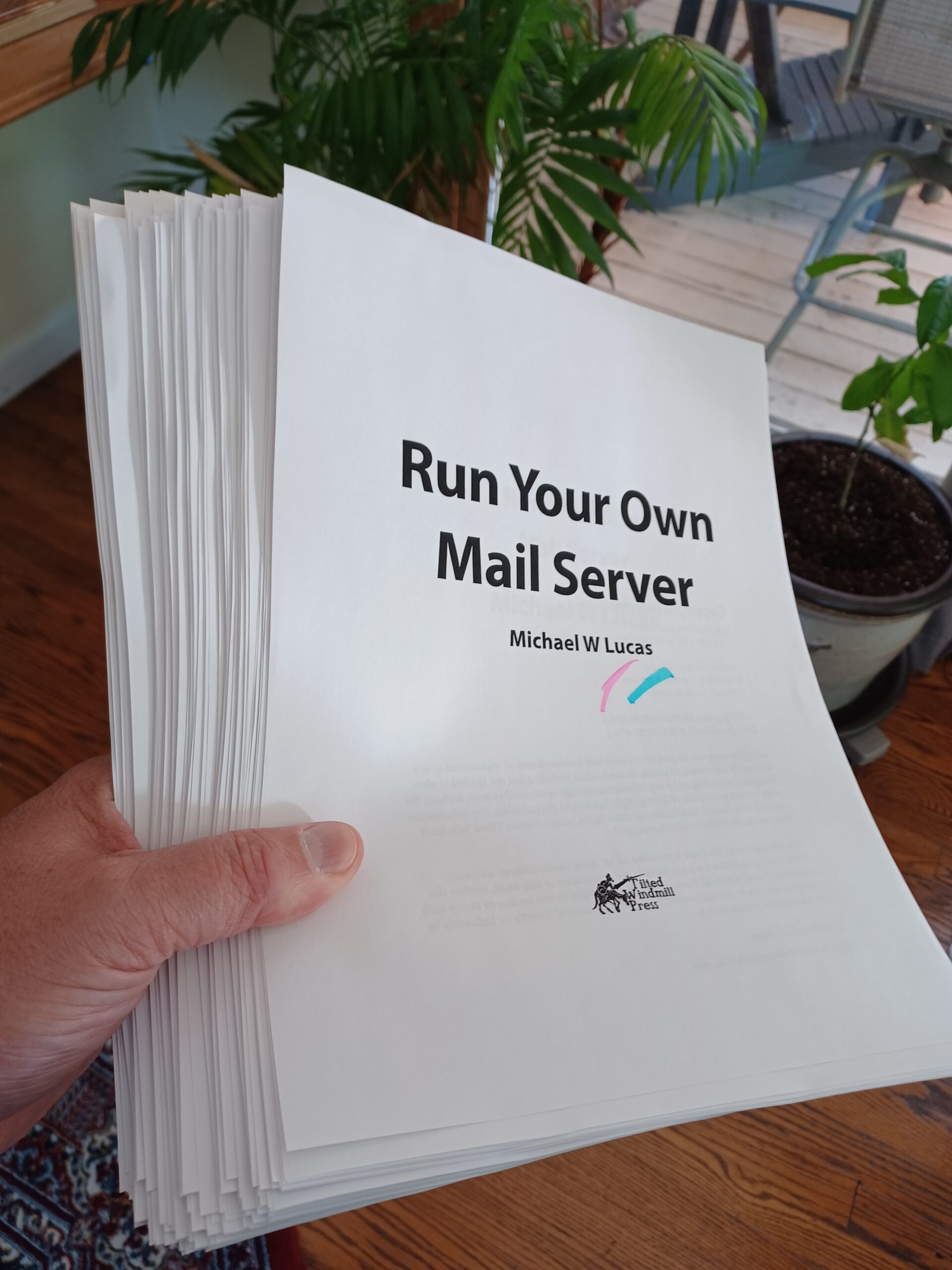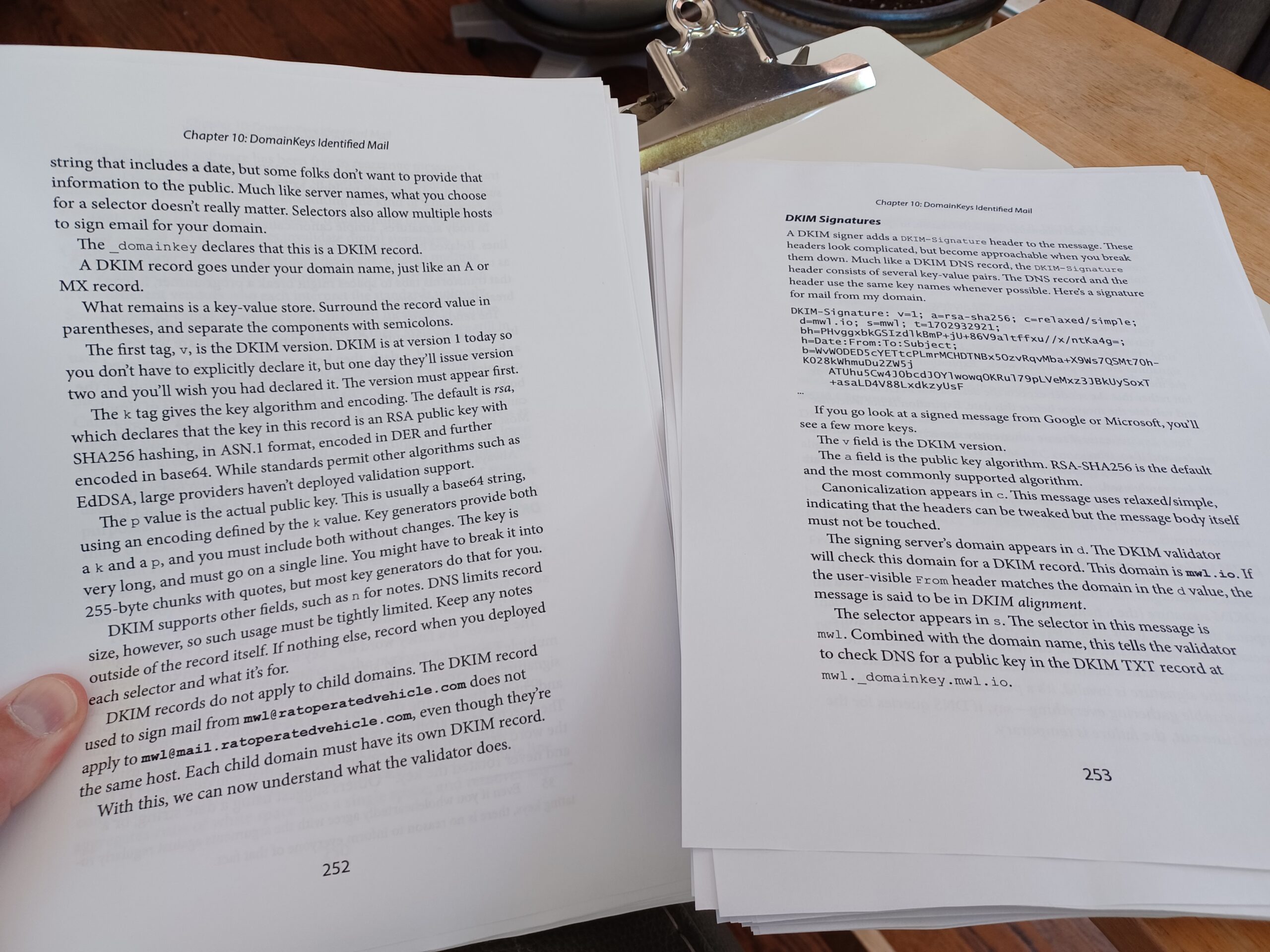Because this all certainly feels like a jape.
Last month, I hoped the RYOMS Kickstarter might round out at $50k. It hit $76,883, with 1966 backers. $25K of that was in the last three days. Plus, there were a few hundred sponsors. This is what we in the writing business call “freaking insane.” My reaction once again proved that I am temperamentally unsuited to success.
This isn’t life-changing money. I’m estimating half for fulfillment. Half of what remains will be reserved for taxes. It does take the emergency fund from “busted water heater” to “totaled car,” and that’s most welcome. Before you ask: yes, I assign a specific definition to “life-changing money.” Life-changing money changes my monthly cash flow for the better without reducing my lifestyle. Paying off ongoing bills is life-changing, but we no longer buy anything on installment payments. The only big bill that can be permanently paid off is the mortgage. Once you have all your bills paid off, “life-changing money” is enough to improve your life without adding new ongoing payments. (Huh. Maybe I need another edition of the cash flow book some time?)
But BSDCan was successful. The Kickstarter is over. RYOMS is at the copyeditor. SWMBO’s leg is healing. This has been a rough few weeks–but in their defense, they’re all rough weeks.
I’ve been fighting with WordPress on tiltedwindmillpress.com. It uses the Jetpack module to send new Patronizer post announcements by email. For a handful of users, Jetpack was conflicting with the Woocommerce credit card module. I had to temporarily disable that function. I believe it’s fixed, but will be watching Patronizer renewals closely. Fingers crossed!
The crush of finishing RYOMS and running the Kickstarter has left my brain kind of wrung out. I have a stack of anthology invites that I’m writing short stories for. Short stories are quick hits of success. It doesn’t matter if the story sells or not. My brain needs to finish something.
It did prompt me to look at my spreadsheet of incomplete collections. A collection should be about 60,000 words or so. Twisted Presents, the Christmas collection, is over 40,000 words. That’s enough for a Christmas book. Books of Christmas stories should be small–nobody wants a doorstop of mayhem for the holidays. I still need to write an orcish Christmas story to round it out. Somehow I have over 40,000 words of Rats’ Man’s Lackey tales. A couple more stories and that’s a proper collection. Found Meat, the next Prohibition Orcs collection, has 22,000 words. Lots to go there. So I’ll probably launch Twisted Presents next June, for an October delivery. There’s some overlap there–does the Rats’ Man’s Lackey Christmas tale go in Twisted Presents, or the RML collection? My gut says both.
The last anthology call is due 14 July.
RYOMS is due back from copyedit 15 July. That’s the rest of July tied up, I’m sure.
Amidst the chaos of the Kickstarter, I’ve been looking at options for sponsors and Patronizers. Of all my readers, y’all are the ones I must treat best.
The general reaction to the whole “what if Patronizers had private chat instead of video” was met with “use Discord,” so I’m going to be setting that up this next week. Will people like it? Who knows? That’ll mean quarterly video hangouts for all Patronizers, as well as invitations to any release parties I have. The RYOMS Kickstarter did well enough that I’m having two release parties, one in the morning and one in the evening. With 2000 people, I’m thinking I’m going to need a moderator to help me out. Perhaps someone to interview me.
Then there’s sponsors. Sponsors get their names in the book as a thank you. The print sponsors have me slightly worried, though. The Kickstarter backers could get the same special edition that print sponsors are getting, but the sponsors pay me months ahead and have faith that I will finish the damned book. I’ve figured out something odd, unique, and limited for the print sponsors, but I have no idea how it’ll go over. If it’s well-received, I’ll do it for all future books that have 90 or more sponsors. If it’s rejected, I’ll do something else next time. Being creative is like cooking spaghetti: you throw stuff on your most enthusiastic readers and see if it sticks.
I’d been pondering doing a second edition of Networking for Systems Administrators next. I suspect that might Kickstart well. Right after the RYOMS Kickstarter closed my inspirational muse soiled my skull with the title It’s Always DNS, and what you should do about it. It is always DNS, but that’s because people don’t know DNS. That seems like it might do well.
And there’s the ugly part of a runaway success Kickstarter. It makes me ponder how I can make that kind of money again, instead of what I want to write.
So come mid-August, when I have RYOMS put to bed, I’ll start writing one of those. I’ll also need to make sure I spend a couple hours a day writing something for pure fun. I don’t want to do another RYOMS forced death march. It kills my joy in life. And if I’m not having fun, I might as well send my resume to an AI company.
At the same time, I’ll open the next tech book for sponsors. And launch Dear Abyss. Because the Lucas Book Machine never stops. NEVER. NO MATTER WHAT. THE BOOK MACHINE MUST WRITE WRITE WRITE GRIND ON AND MAKE MORE WORDS AND MORE WORDS WORDS WORDS WORDS <bzzzt> <zap> <thud>


